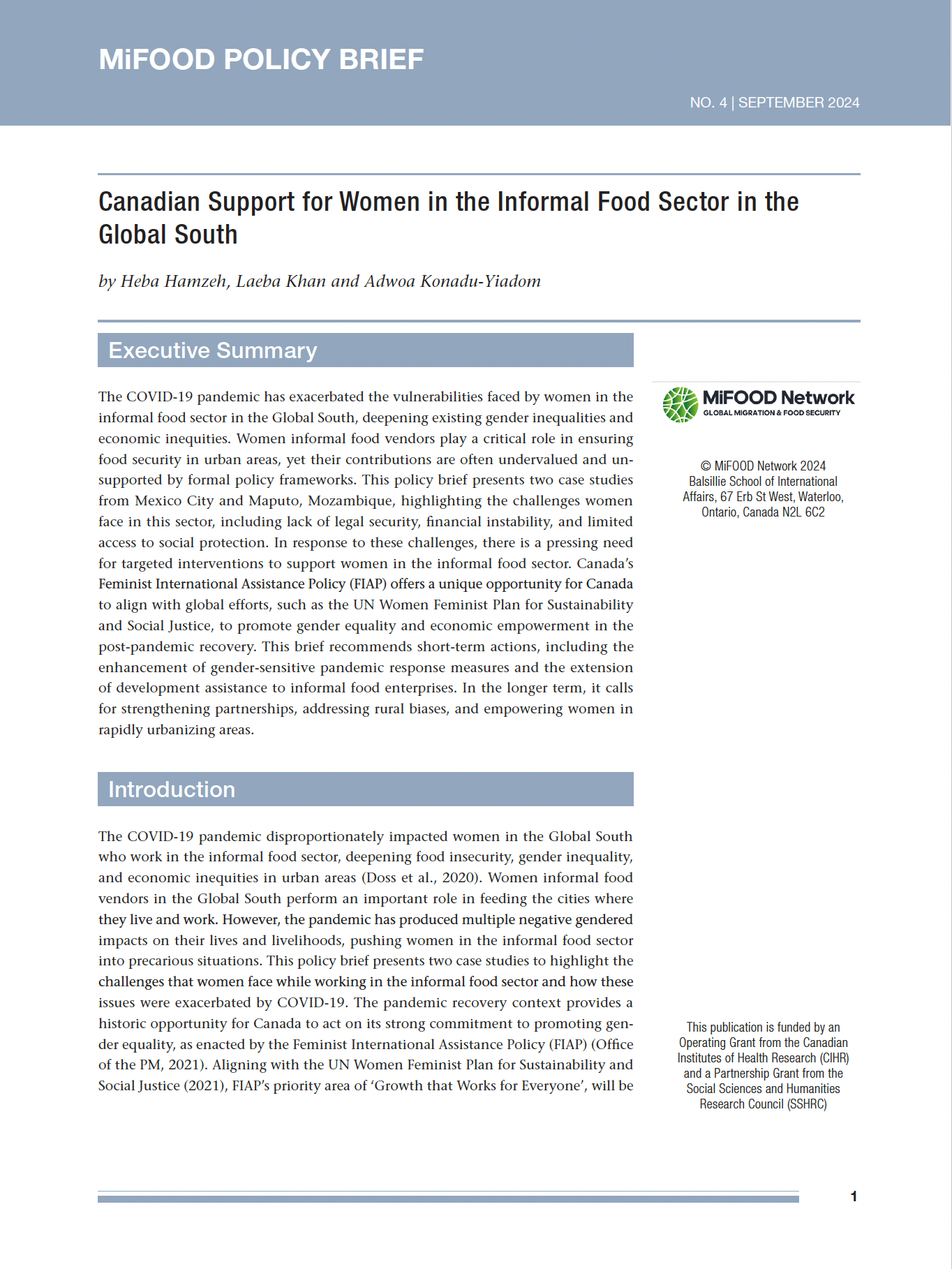The COVID-19 pandemic has exacerbated the vulnerabilities faced by women in the informal food sector in the Global South, deepening existing gender inequalities and economic inequities. Women informal food vendors play a critical role in ensuring food security in urban areas, yet their contributions are often undervalued and unsupported by formal policy frameworks. This policy brief presents two case studies from Mexico City and Maputo, Mozambique, highlighting the challenges women face in this sector, including lack of legal security, financial instability, and limited access to social protection. In response to these challenges, there is a pressing need for targeted interventions to support women in the informal food sector. Canada’s Feminist International Assistance Policy (FIAP) offers a unique opportunity for Canada to align with global efforts, such as the UN Women Feminist Plan for Sustainability and Social Justice, to promote gender equality and economic empowerment in the post-pandemic recovery. This brief recommends short-term actions, including the enhancement of gender-sensitive pandemic response measures and the extension of development assistance to informal food enterprises. In the longer term, it calls for strengthening partnerships, addressing rural biases, and empowering women in rapidly urbanizing areas.
[This policy brief was developed by the authors without the assistance of AI.]

